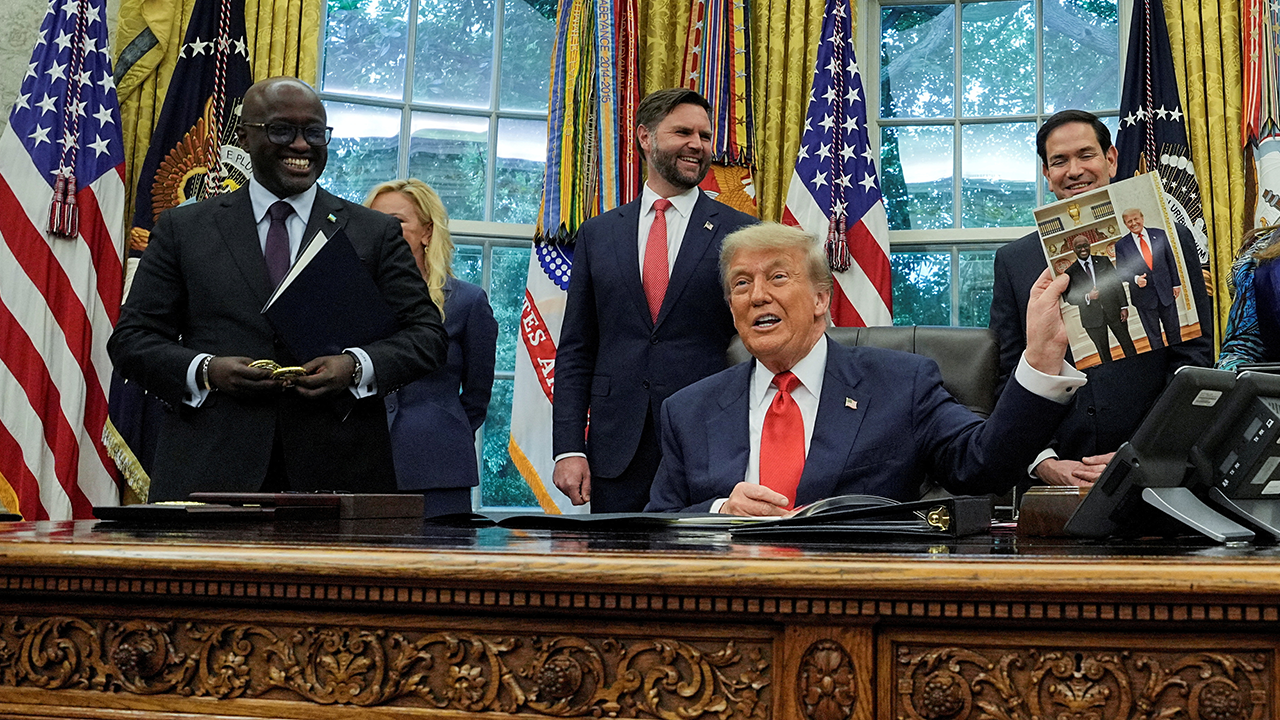Rwanda Strikes Deal with U.S. to Accept Up to 250 Deported Migrants
KIGALI, Rwanda – On August 5, 2025, Rwanda became the third African nation to enter into an agreement with the Trump administration to accept up to 250 migrants deported from the United States, as part of a controversial third-country deportation program. The deal, first reported by Reuters, was signed in June 2025 and aligns with President Donald Trump’s campaign promise to expedite the removal of undocumented immigrants, estimated at around 11 million in the U.S..
Details of the Agreement
According to Rwandan government spokesperson Yolande Makolo, the agreement allows Rwanda to vet each individual proposed for resettlement, ensuring that only those meeting specific criteria are accepted. Rwanda has explicitly stated it will not accept child sex offenders or migrants with ongoing U.S. prison sentences. Approved individuals will receive workforce training, healthcare, and accommodation to facilitate their integration into Rwanda’s economy, which has been one of the fastest-growing in Africa over the past decade. “Those approved will be provided with workforce training, healthcare, and accommodation support to jumpstart their lives in Rwanda, giving them the opportunity to contribute,” Makolo said in a statement to the Associated Press..
The U.S. will provide Rwanda with an unspecified grant to support the program, with the grant letter finalized in July 2025. While the exact amount remains undisclosed, the agreement allows for the possibility of extending beyond 250 migrants by mutual consent. Deportees are not obligated to remain in Rwanda and may leave at any time..
Context and Precedents
This deal follows similar arrangements with South Sudan and Eswatini, where the U.S. deported 13 and five migrants, respectively, in July 2025. The South Sudan deportees, originating from countries including South Sudan, Cuba, Laos, Mexico, Myanmar, and Vietnam, were held in a converted shipping container at a U.S. military base in Djibouti during legal challenges before their transfer. Eswatini accepted five individuals from Vietnam, Jamaica, Cuba, Yemen, and Laos, who are now held in solitary confinement in a maximum-security prison, with plans for eventual repatriation to their home countries. The U.S. Department of Homeland Security (DHS) described these deportees as “dangerous criminals” whose home nations refused to accept them..
Rwanda’s agreement comes amid the Trump administration’s broader push for third-country deportations, a strategy to address cases where migrants’ home countries refuse repatriation. The administration has also deported hundreds of Venezuelans and others to Costa Rica, Panama, and El Salvador, with over 200 Venezuelans sent to El Salvador’s notorious Terrorism Confinement Center (CECOT) in March 2025, using an 18th-century wartime law. These moves have been supported by significant funding, including $45 billion for immigration detention centers and $4.1 billion for hiring and training Immigration and Customs Enforcement (ICE) officials, as part of the “One Big Beautiful Bill” signed in July 2025..
Controversy and Criticism
The deal has sparked significant controversy, with human rights groups and critics arguing that third-country deportations risk violating international law, particularly the principle of non-refoulement, which prohibits sending individuals to countries where they may face persecution or harm. Rwanda’s human rights record, including allegations of crackdowns on dissent and the deaths of perceived government critics, has raised concerns about the safety of deportees. The United Nations High Commissioner for Refugees (UNHCR) previously warned of “serious risks” in Rwanda’s failed 2022 deal with the United Kingdom, which was ruled unlawful by Britain’s Supreme Court in 2023 due to safety concerns..
Critics have labeled the U.S.-Rwanda deal as “offshore dumping,” accusing the Trump administration of treating African nations as disposal grounds for unwanted migrants. Posts on X reflect this divide, with some users calling it a “bipartisan human rights disgrace” and others viewing it as a strategic move to enforce immigration policies. Rwandan political analyst Gonzaga Muganwa suggested the deal serves Rwanda’s strategic interest in maintaining good relations with the Trump administration, stating, “Appeasing President Trump pays.”.
Rwanda’s Stance and History
Rwanda has positioned itself as a destination for migrants, citing its societal values of “reintegration and rehabilitation,” rooted in its recovery from the 1994 genocide that killed over 800,000 people. The country has experience hosting refugees, having evacuated nearly 3,000 from Libya between 2019 and 2025 under a deal with the UN refugee agency and the African Union. However, its human rights record and alleged support for the M23 rebel group in the Democratic Republic of Congo, which Rwanda denies, continue to draw scrutiny..
Broader Implications
The U.S.-Rwanda deal is part of a broader strategy to expedite deportations, with the Trump administration seeking additional agreements with African nations. Critics argue that the rapid pace of these deportations denies migrants due process, often sending them to countries where they have no ties or language skills. The lack of transparency, with the U.S. State Department and DHS declining to comment on specifics, has fueled calls for greater oversight..
As details of the Rwanda deal continue to emerge, including timelines and the identities of deportees, the program remains a flashpoint in the global debate over migration, human rights, and international cooperation. Observers on X have called for transparency, national consultation, and clear legal safeguards to ensure the protection of deportees’ rights..
Tags: Rwanda, U.S. deportation, Trump administration, third-country deportation, migration, human rights, refoulement, workforce training, healthcare, accommodation, South Sudan, Eswatini, international law, offshore dumping, immigration enforcement
